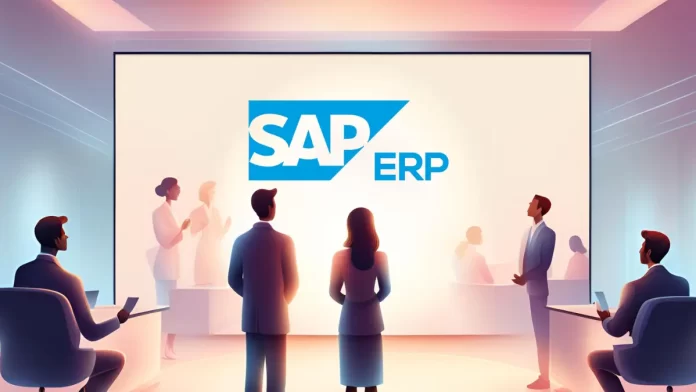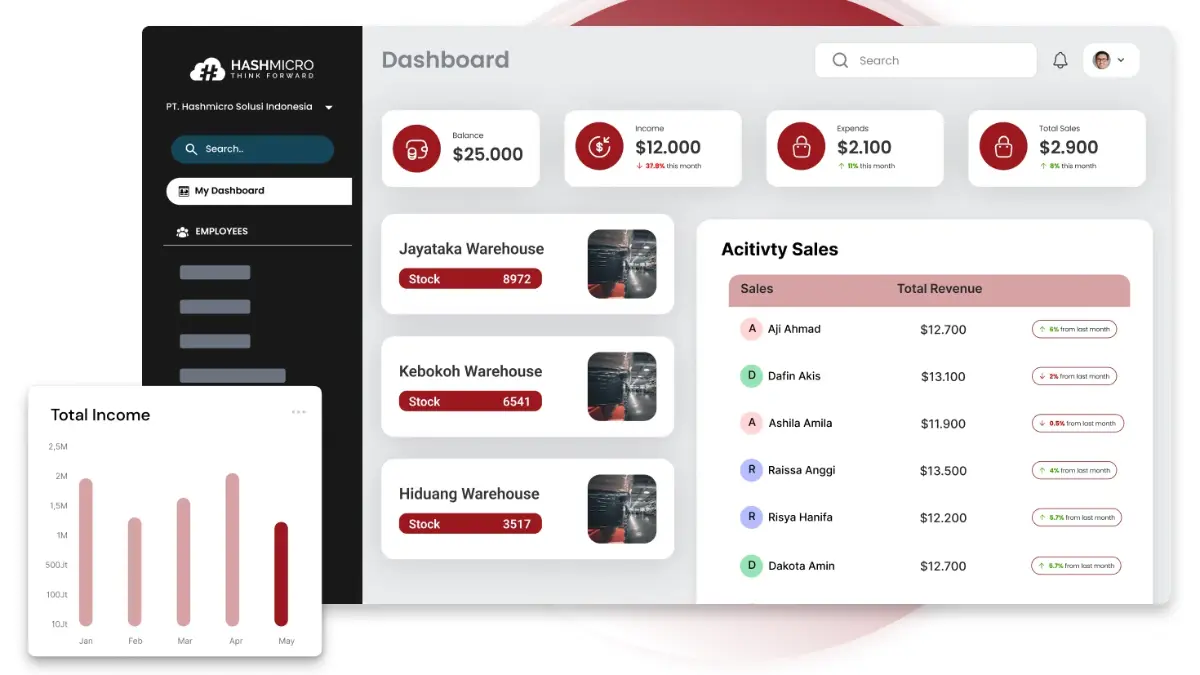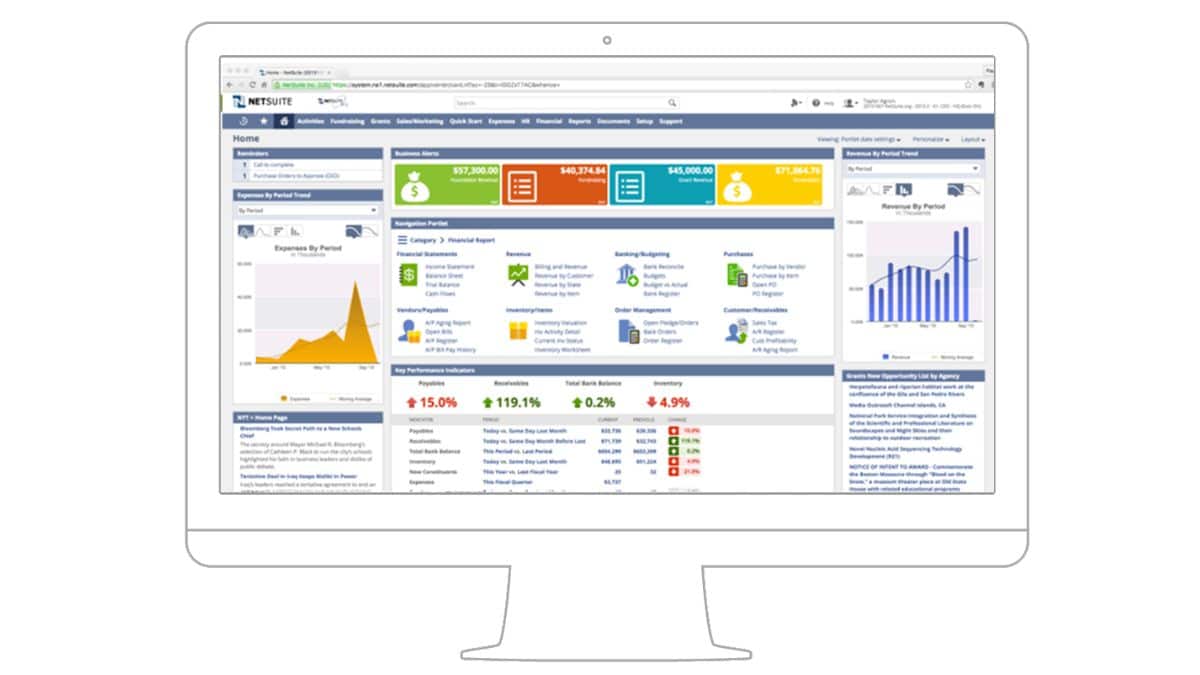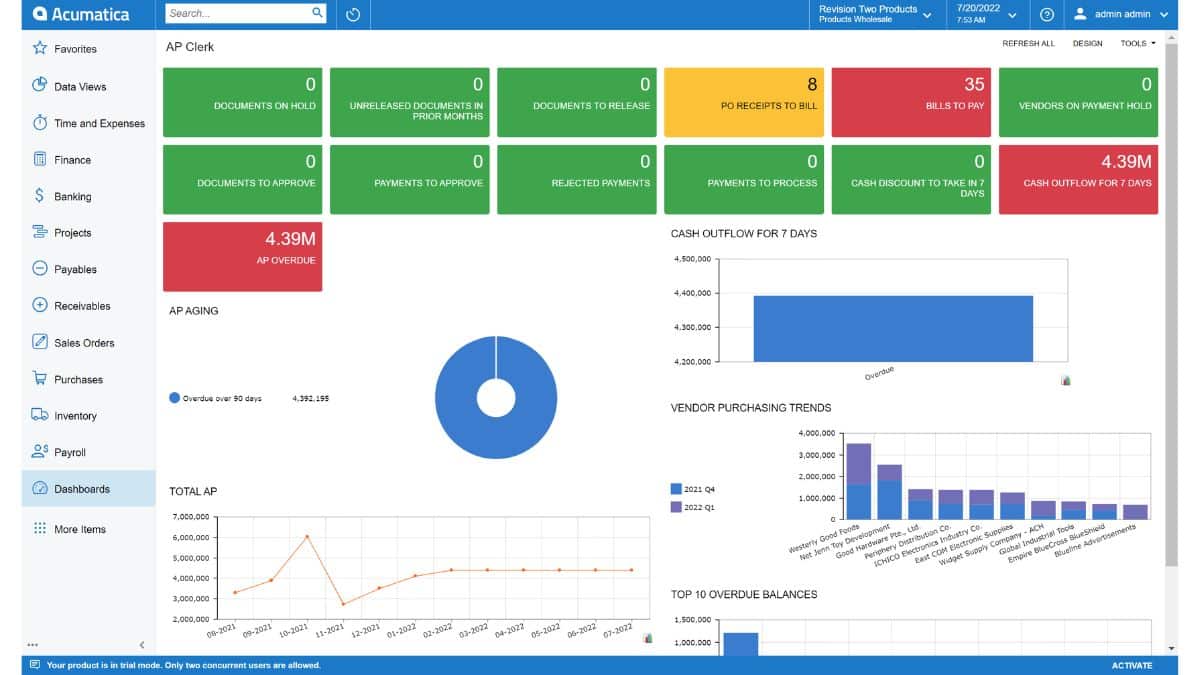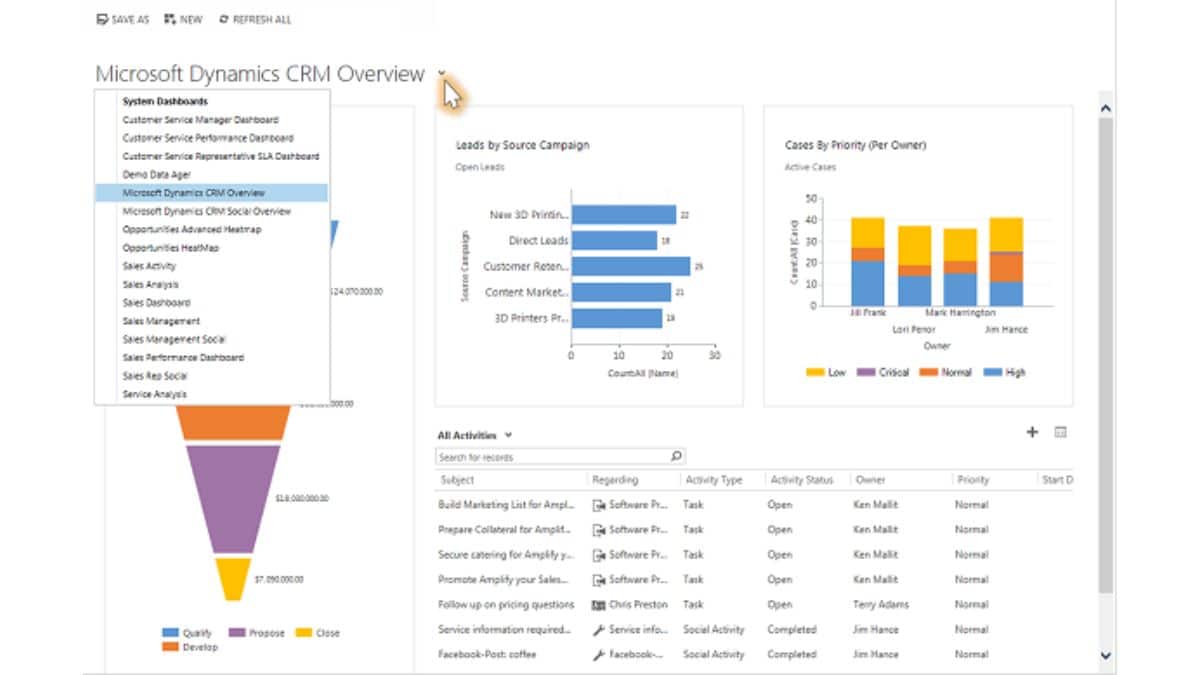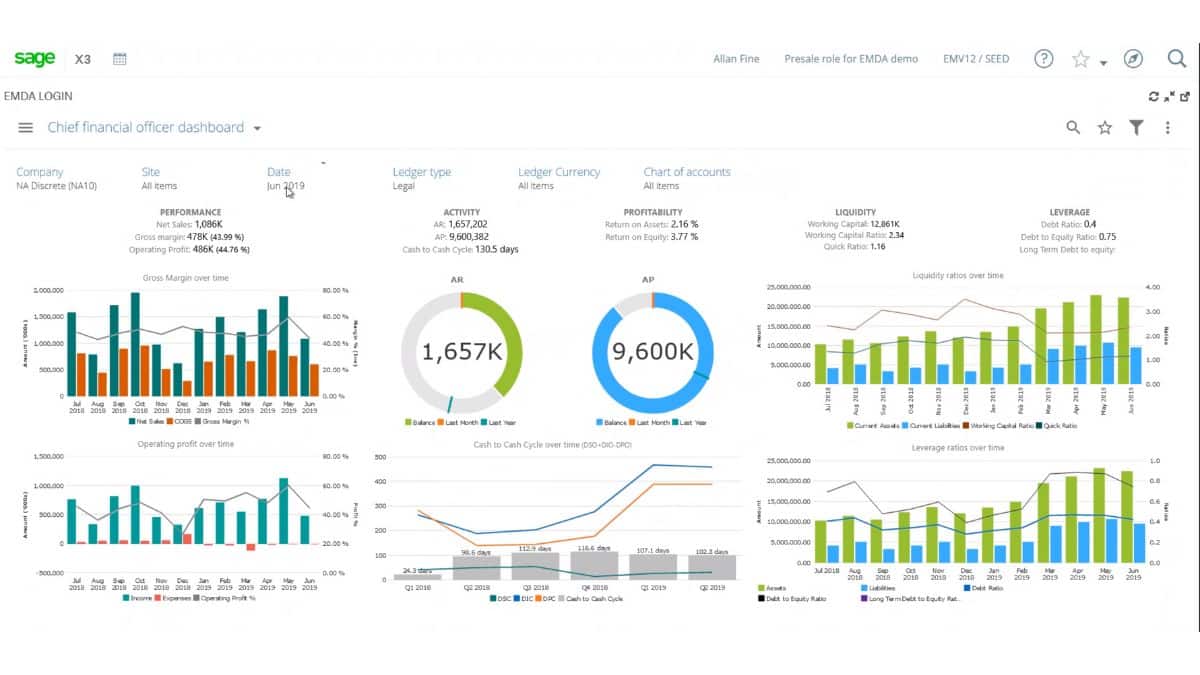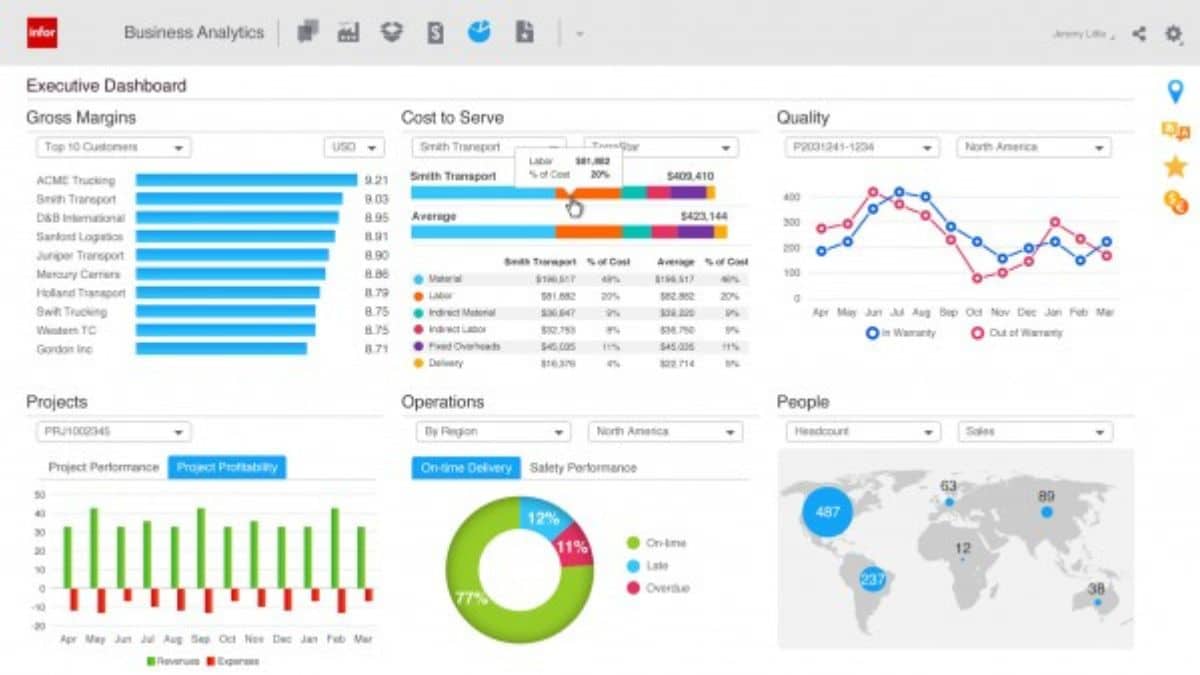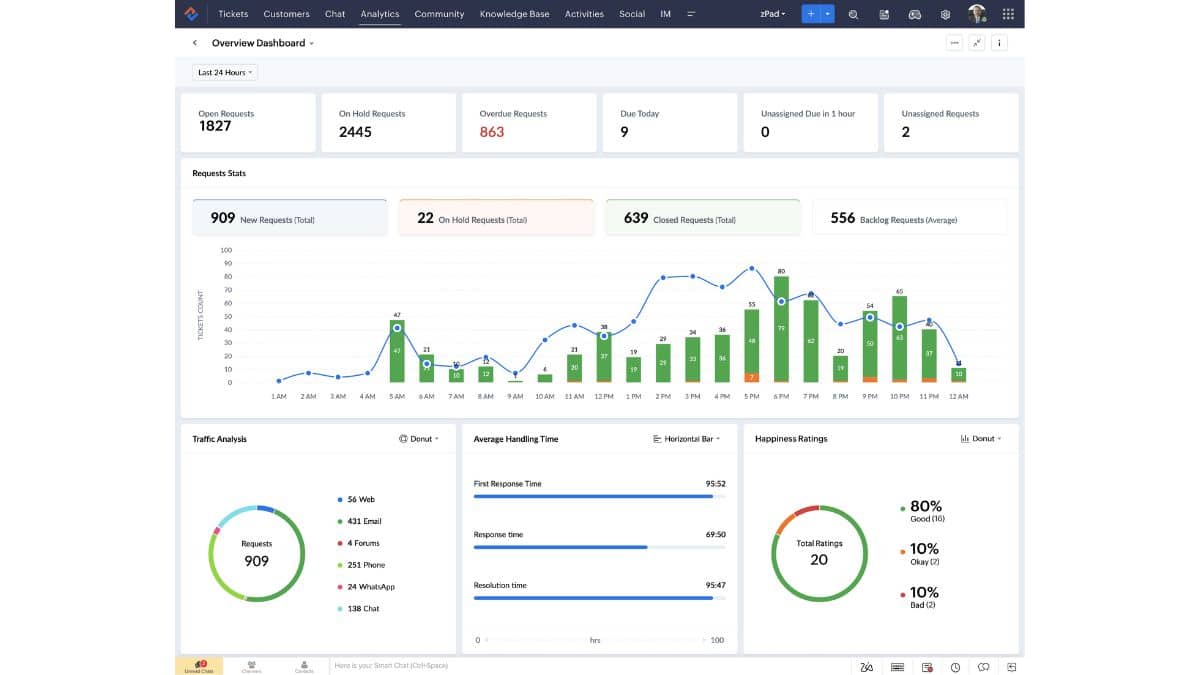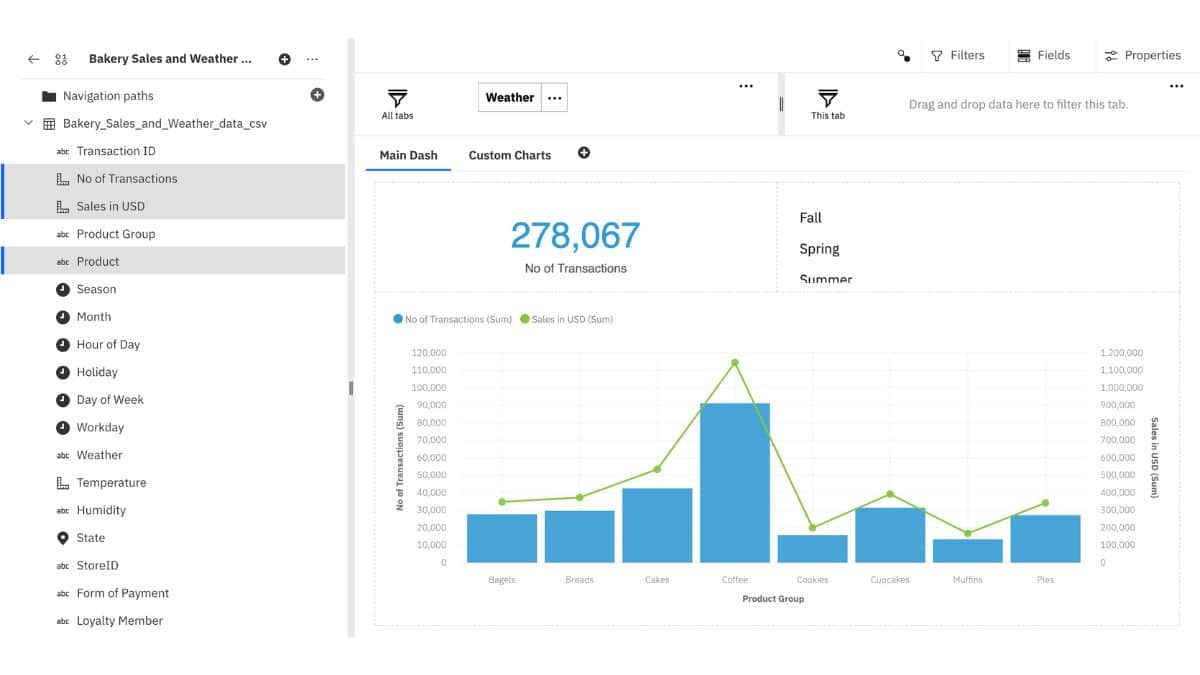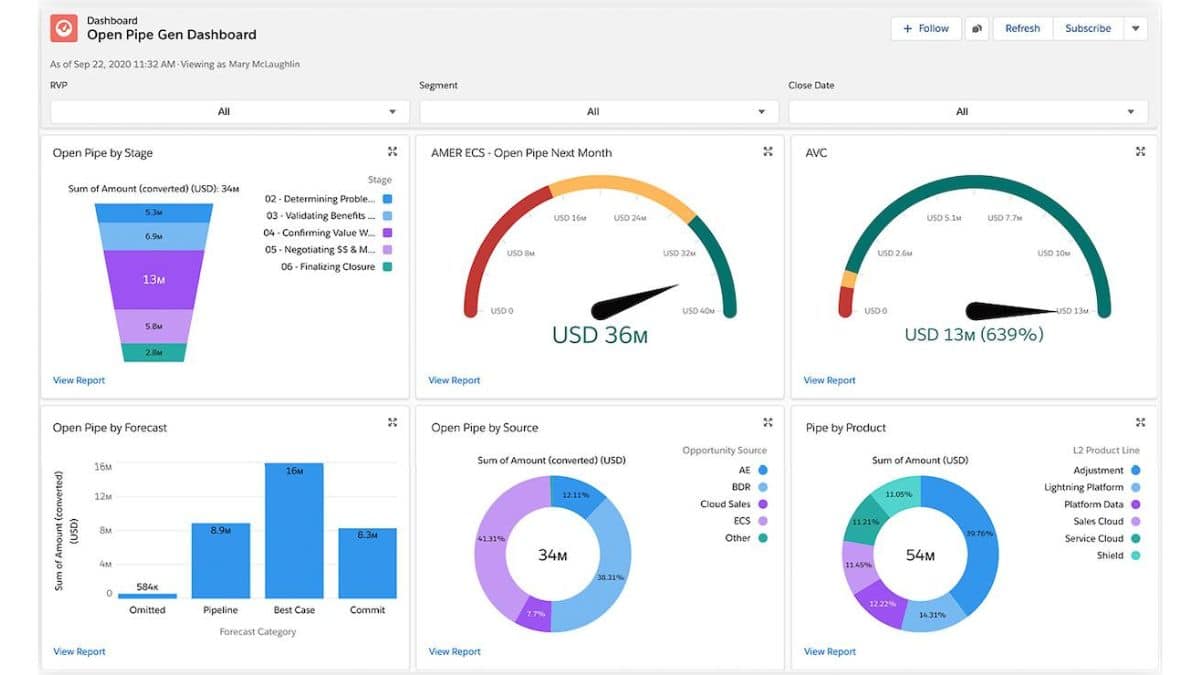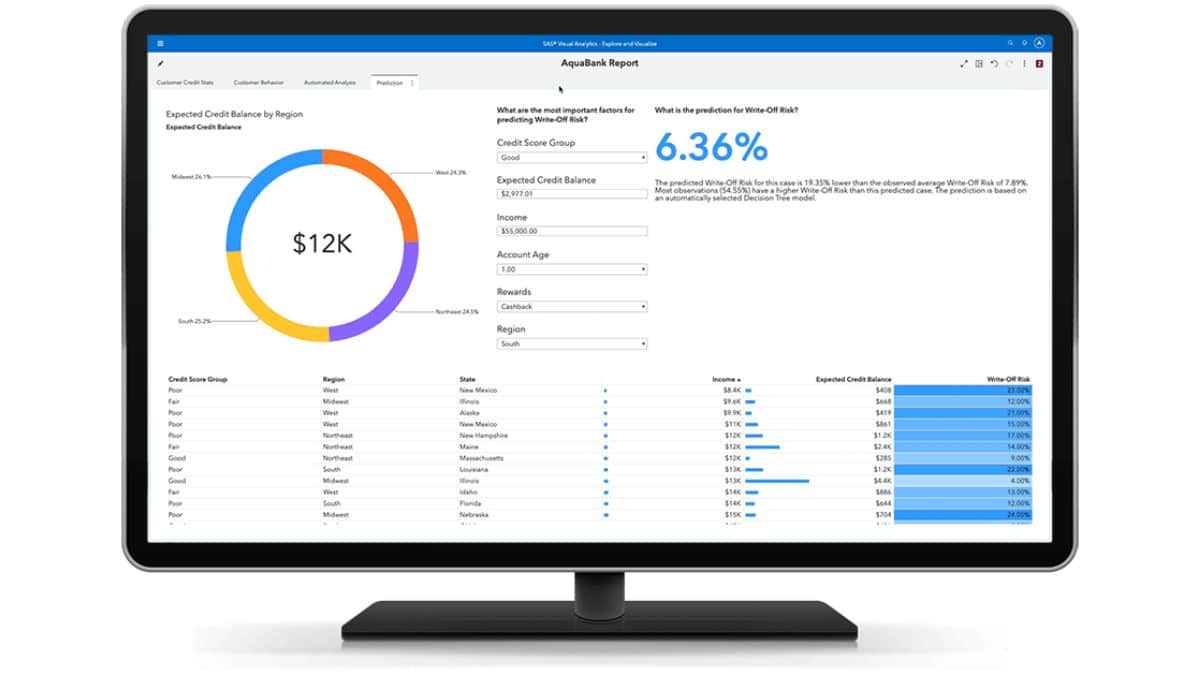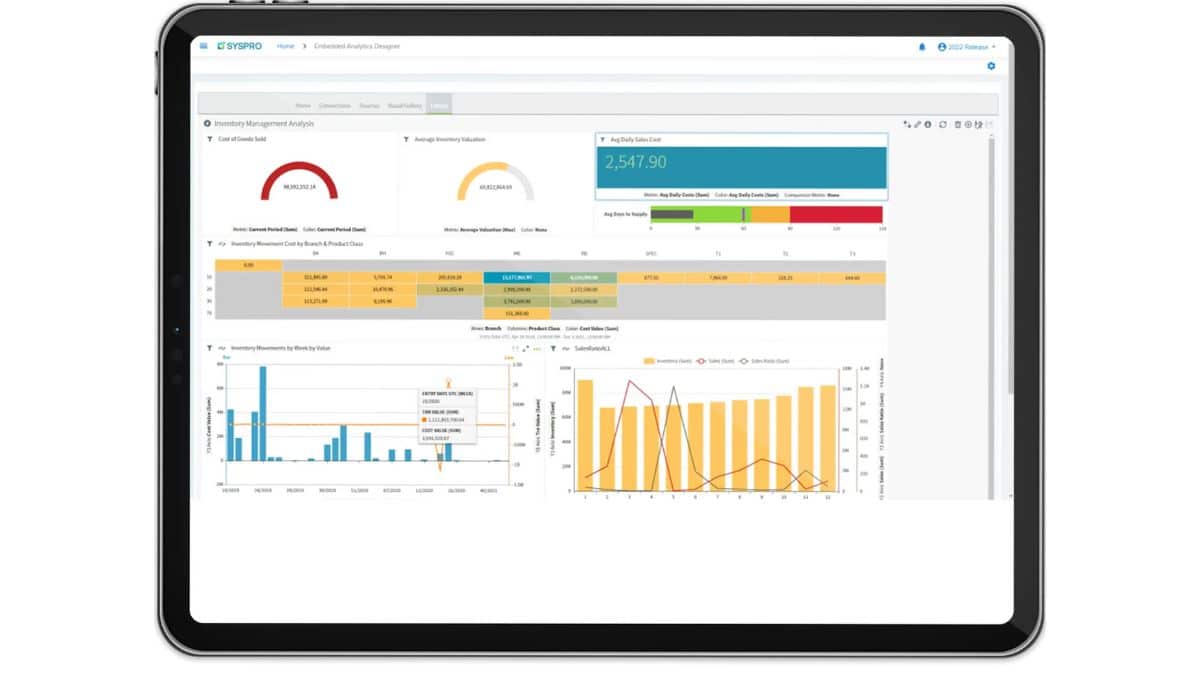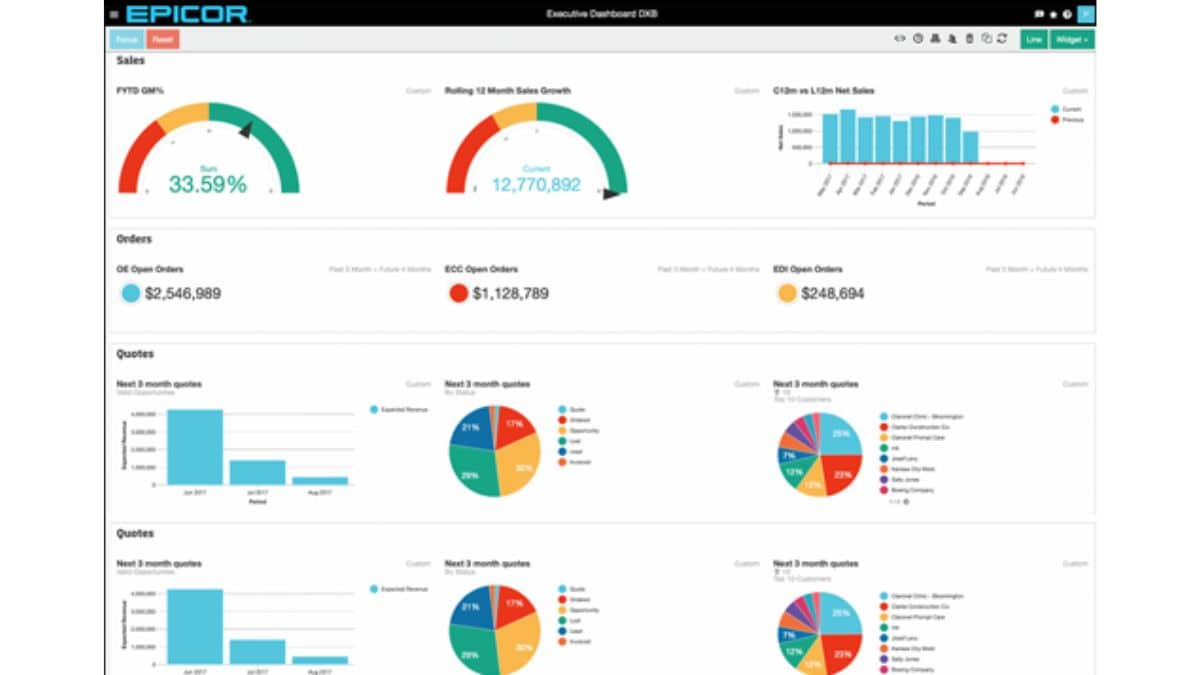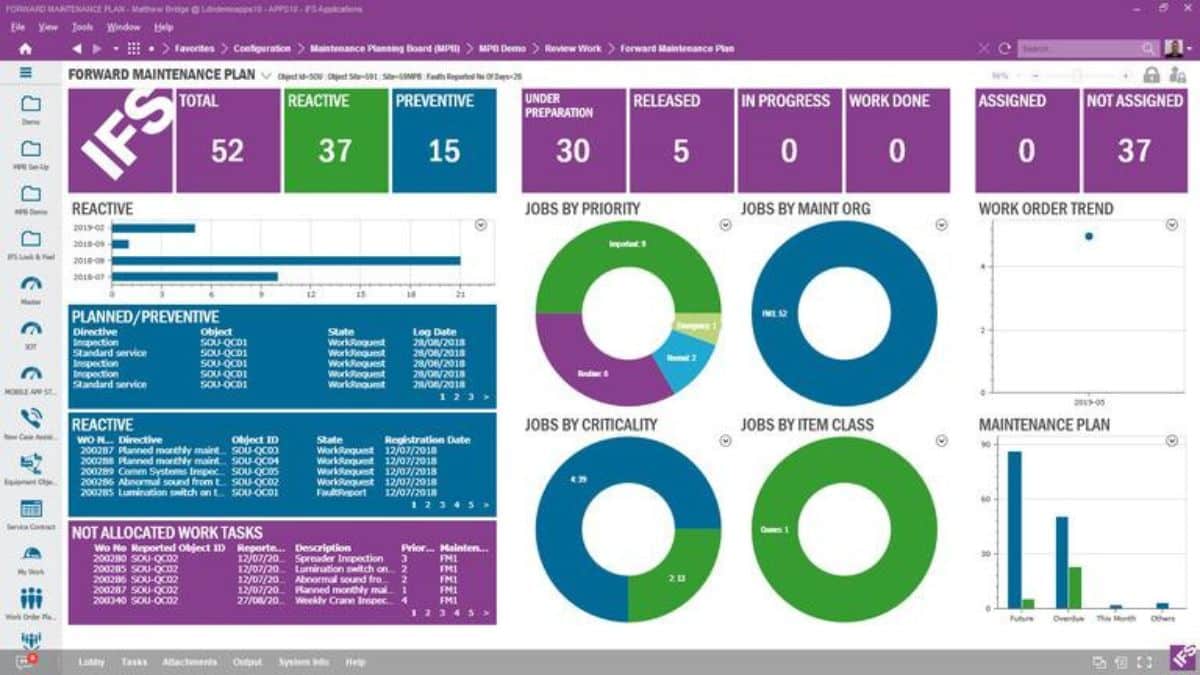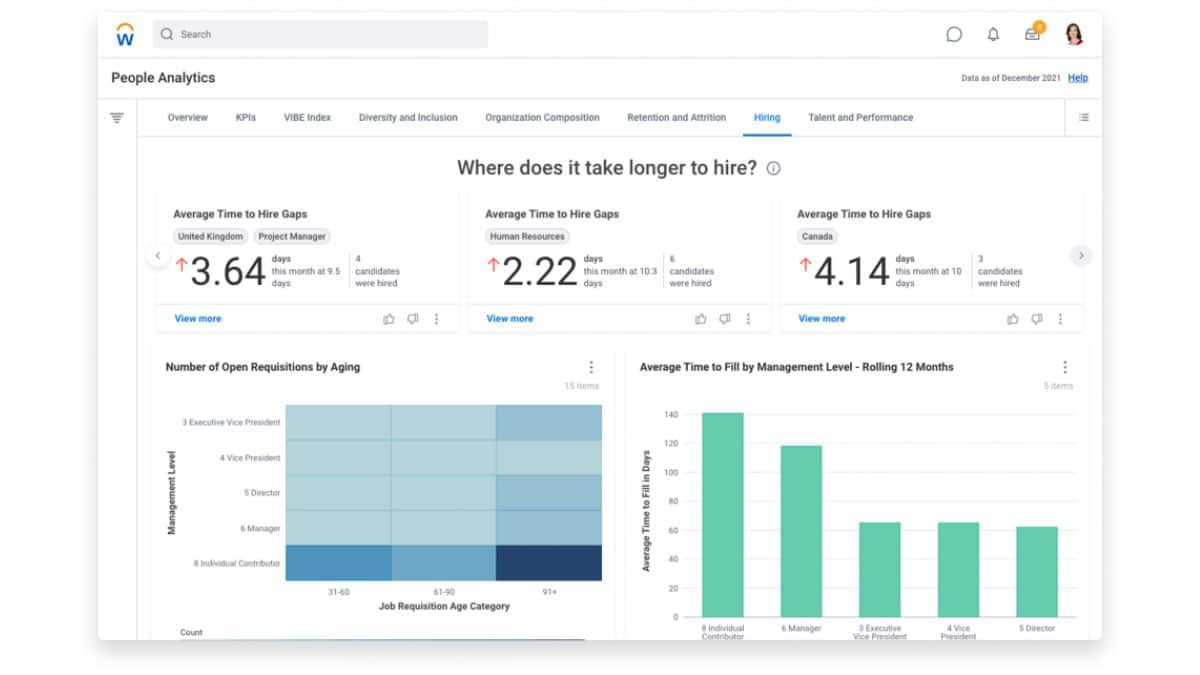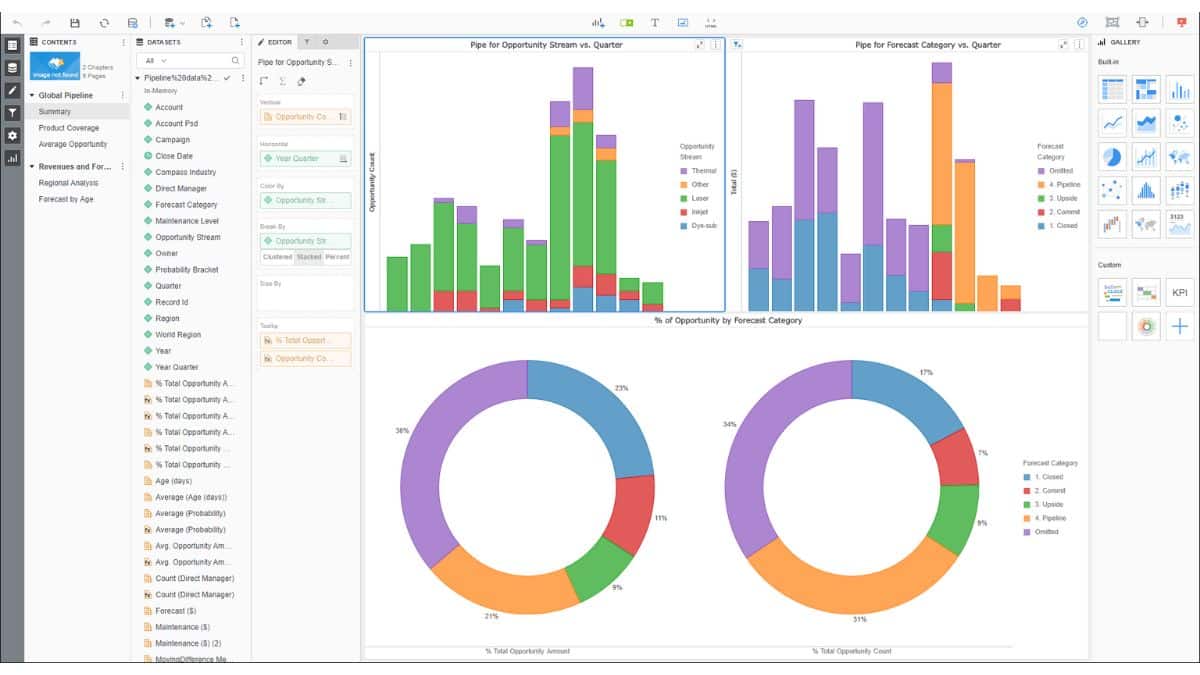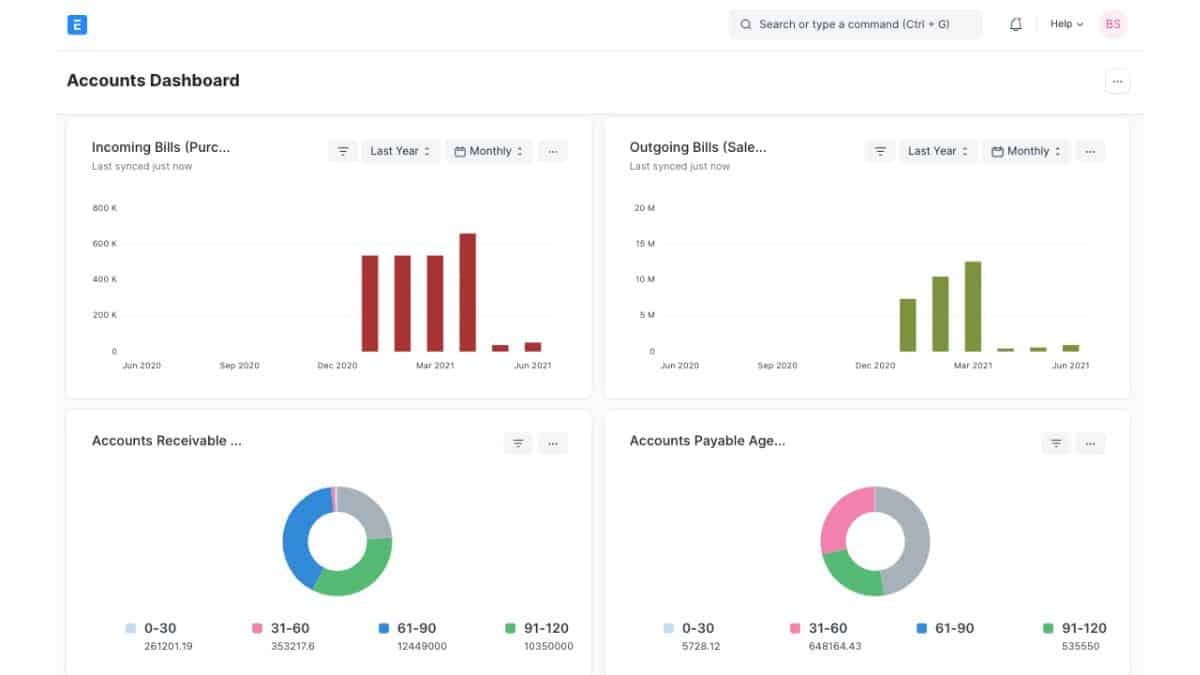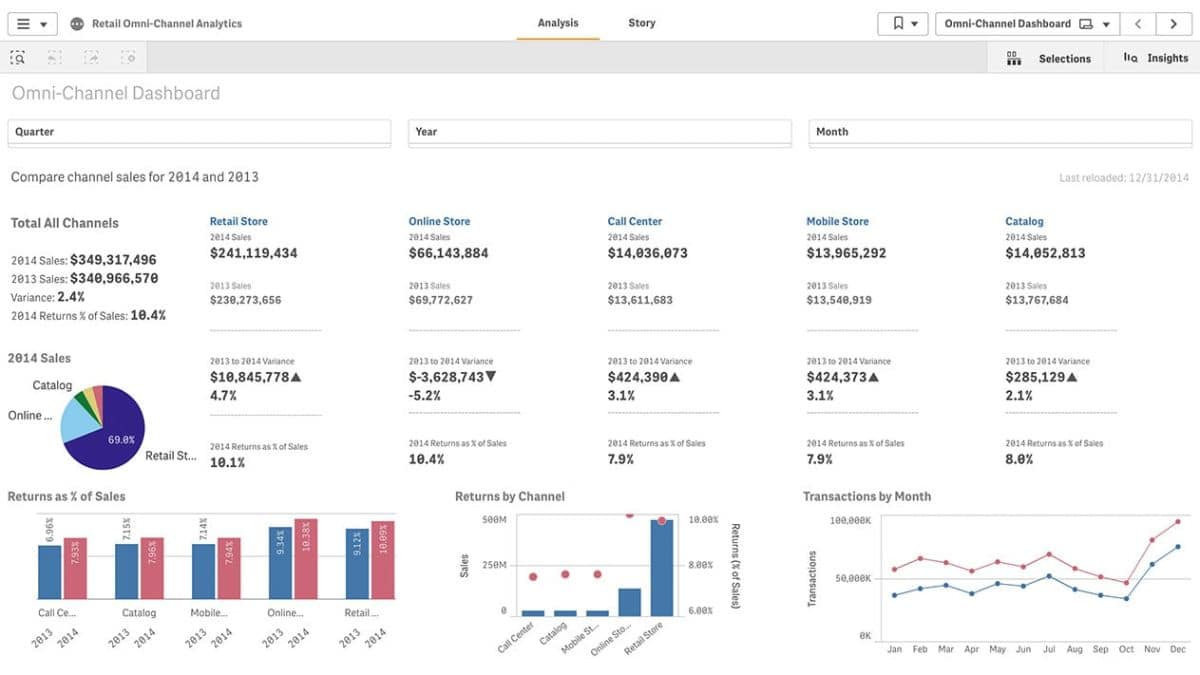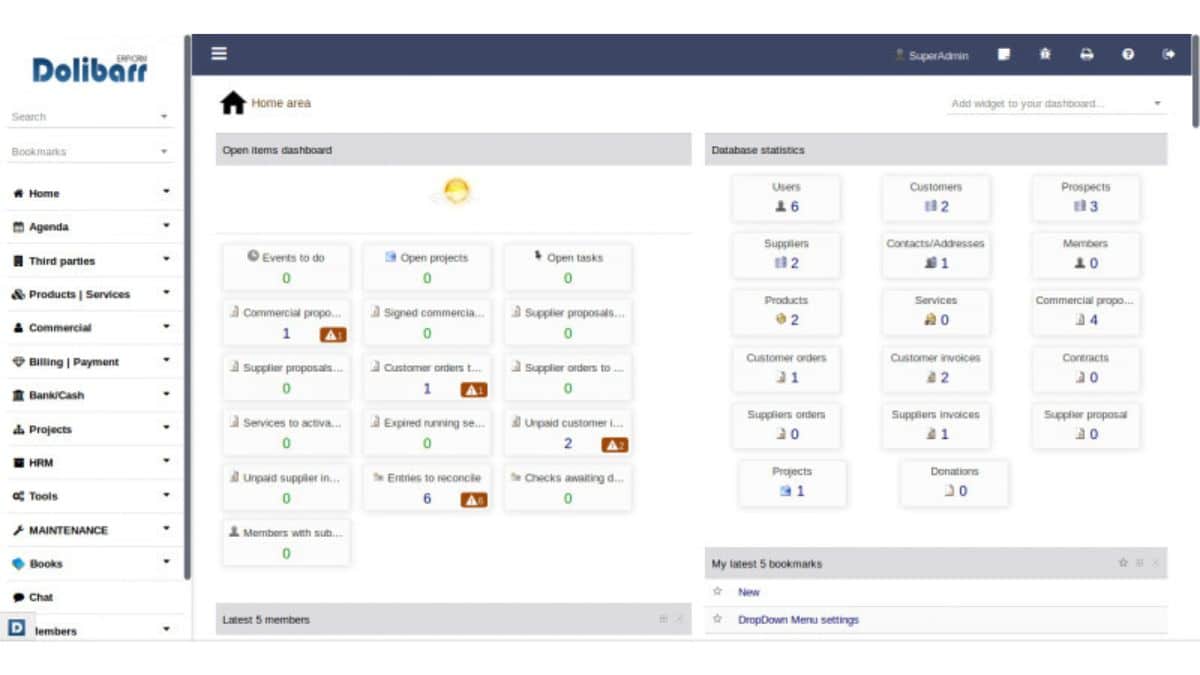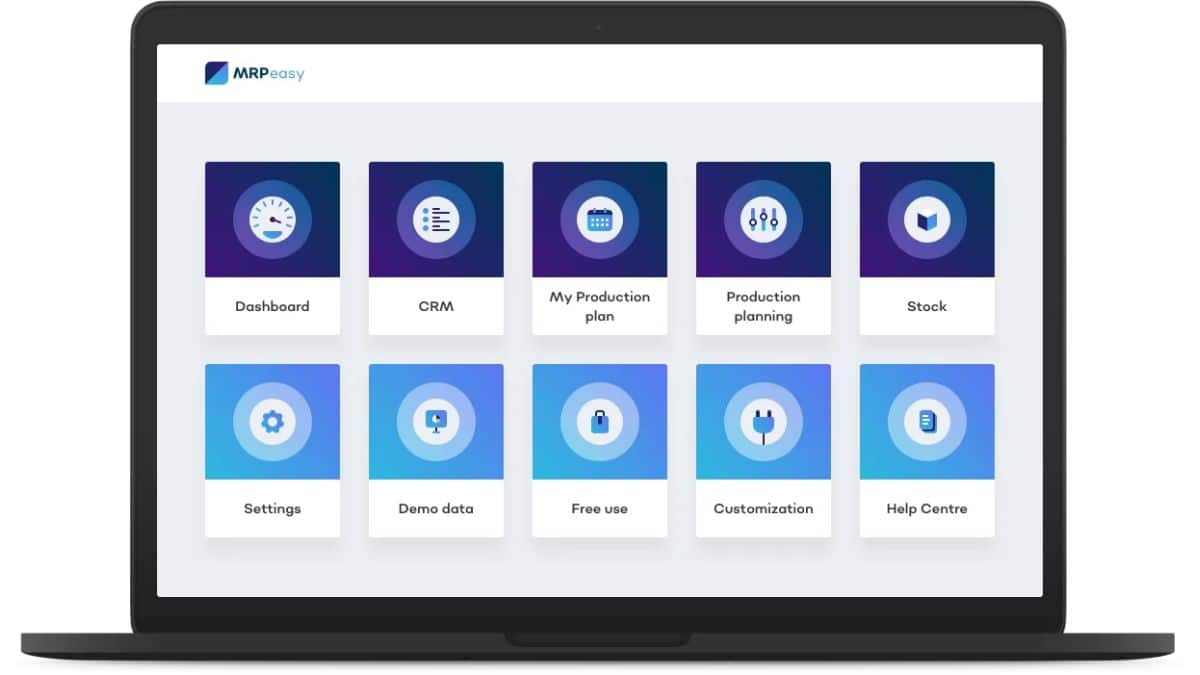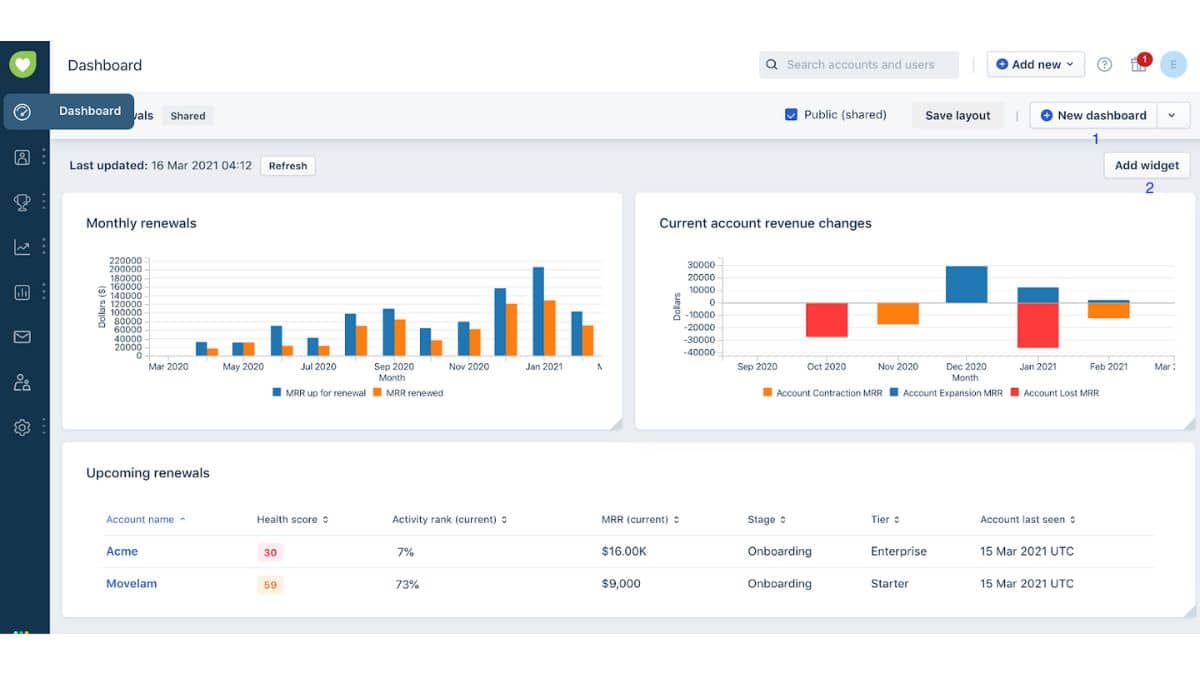For companies with complex operations, choosing the right ERP software is crucial to maintain balance and accuracy. This decision impacts not only operational efficiency but also a company’s ability to adapt and grow amid rapidly changing market dynamics.
According to Researchnester, the ERP software market in Singapore is projected to reach USD 2,642.4 million by 2033, with a compound annual growth rate (CAGR) of 12.4% from 2023 to 2033. This demonstrates strong and sustained growth in the country’s adoption of ERP solutions, reflecting a rising need for more advanced and integrated business management systems.
One well-known ERP solution that can help enhance business operational efficiency is SAP ERP. With its advanced features, SAP ERP has been utilized by many large companies to manage various aspects of their business effectively and efficiently.
However, can SAP ERP truly address the complexities of your business operations? Are there alternative solutions to SAP that might be better suited to tackling the growing challenges businesses face today? These are critical questions to consider before deciding on the ERP software that will best meet your needs.
This article will explore the top 20 SAP alternatives and competitors, providing a comprehensive guide to finding the right software. With this information, you can make a more informed and strategic decision for your business’s ERP needs.
Table of Content:
Table of Content

Key Takeaways
|
What is SAP ERP?
SAP ERP, which stands for Systems, Applications, and Products in the Processing of Data, is an ERP software developed by the German multinational company SAP SE. Founded in Walldorf, Germany, SAP SE is renowned for providing software solutions that help companies manage various operational aspects.
SAP Enterprise Resource Planning (ERP) software is designed to assist companies in managing their financials, logistics, supply chain, human resources, and other business functions. By integrating all data from different departments, SAP ERP enables real-time information access, crucial for quick and accurate decision-making.
Moreover, SAP ERP offers customizable features tailored to each company’s needs, ensuring the flexibility and scalability required for sustainable business growth. With SAP ERP, companies can enhance visibility into their business performance, minimize the risk of human errors, and improve coordination across departments.
SAP ERP: Features, Pros, and Cons
Before choosing SAP ERP for your business, reviewing the features offered and understanding the advantages and disadvantages is essential. By conducting a thorough evaluation, you can ensure that the software suits your business needs and goals, maximising operational efficiency and driving sustainable growth.
The following is a summary of the features, advantages, and disadvantages of SAP ERP:
Key features of SAP:
- Financial Management: SAP ERP automates essential accounting tasks like journal entries, accounts receivable, and accounts payable, ensuring accuracy and saving time. It also improves cash flow management, fixed asset tracking, budget control, and project cost monitoring with precision.
- Sales and Customer Management: SAP ERP tracks sales opportunities and leads throughout the sales cycle, ensuring no potential sales are missed. It also centralizes critical customer data, enhancing customer relationships and streamlining service management for better customer satisfaction.
- Purchasing and Inventory Control: SAP ERP streamlines procurement by handling requisition requests, purchase orders, creation of goods receipts, and returns management. It integrates warehouse and accounting functions, enabling real-time synchronization and efficient purchase planning.
- Business Intelligence: SAP ERP allows you to create and customize reports from multiple data sources, enhancing decision-making and strategic planning. It also offers interactive analysis with tools like drag-and-drop, search assistance, and workflow-based alerts.
- Analytics and Reporting: SAP ERP enables the design of intuitive, interactive dashboards and reports to track revenues, costs, and cash flow accurately. It also offers real-time analytics and simplifies data searching, ensuring you have the most current data for informed decision-making.
Advantages of SAP ERP:
- Extensive customization is available, allowing businesses to tailor solutions to meet their specific needs effectively.
- Provides the most common tools for everyday business functions, significantly enhancing overall operational efficiency.
- Easily find customer information, thereby improving customer relationship management and service quality.
- Work with data in real-time, facilitating timely and informed decision-making processes.
- Quickly approve or reject employee requests as needed, streamlining HR workflows and increasing productivity.
- The underlying SAP HANA database enables complex business analyses, offering profound insights for strategic planning.
- Access to various visual reports, making data interpretation and business intelligence more accessible and actionable.
Disadvantages of SAP ERP:
- Initial configuration and installation often require the involvement of an expensive partner or Value Added Reseller (VAR), leading to higher initial costs.
- Extensive customization can be time-consuming and complex, potentially delaying implementation.
- Additional system applications such as HR may have a limited feature set, which can restrict their functionality.
- Customers have complained about slow performance and outdated features, impacting the overall user experience.
- Limited browser support can restrict accessibility and usability across different platforms.
Do You Need SAP Alternatives?
Although SAP solutions boast exceptional features and advantages, you need to ask whether these SAP analytics cloud alternatives truly meet your business’s specific needs.
SAP ERP is indeed renowned for its extensive capabilities and scalability, but every business has unique requirements that SAP may not fully address. Therefore, it is essential to evaluate whether all the offered features are genuinely relevant and can be effectively applied to daily business operations.
However, if your business requires software more precisely tailored to its operational needs, SAP alternatives like HashMicro, Oracle NetSuite, and Acumatica can be the solution. HashMicro, for example, offers a variety of modules that can be customized to the specific needs of your industry, providing flexibility that may not be found in SAP packages.
Analyzing your business needs in detail and comparing them with the features offered by various alternatives is a crucial step in this process. This way, you can ensure that your choice is based not just on popularity or reputation but on how well the software can meet and support your business objectives.
Therefore, choosing the best SAP alternatives will ensure smooth business operations. This decision will impact efficiency and productivity, customer satisfaction, and the long-term success of your company.
20 Best SAP Alternatives and Competitors
When choosing the right ERP software for your business, it is essential to explore all available options to find the perfect fit for your unique needs. While SAP is a powerful and widely used ERP solution, several alternatives to SAP ERP and competitors offer robust features, flexibility, and scalability.
Below, we highlight the top 20 SAP alternatives and competitors that can help you streamline operations, enhance productivity, and drive growth in your organization.
1. HashMicro ERP Software
HashMicro ERP software is one of the top ERP software in Singapore, with advanced functions that streamline overall business operations. The software is renowned for its ability to streamline operations and improve efficiency and decision-making through real-time data integration.
HashMicro also offers free demos and consultations with a team of professionals, so potential customers can test the system and its features before making a purchase.
With HashMicro ERP software, you no longer need to manage various processes manually. The benefits of this top-tier ERP solution include significant time savings, as all routine tasks are automated.
Additionally, HashMicro streamlines the collection of data that is typically scattered across different departments, providing better visibility and centralized information for quicker and more accurate decision-making.
The following are some of the excellent ERP Modules offered by HashMicro:
- Project Management: This feature could effectively manage projects with tools for planning, execution, and monitoring. You also could track project progress, allocate resources efficiently, and ensure timely completion to meet business objectives.
- Inventory Management: Optimize stock levels by preventing stockouts or overstock situations. Additionally, automate inventory tracking to improve accuracy and operational efficiency, ensuring smooth inventory management.
- Financial Management: Utilize comprehensive tools for managing all financial operations, including budgeting and forecasting. Enhance financial reporting to support strategic planning and compliance.
- Procurement Management: Automated purchasing workflows simplify procurement processes and operations. Manage vendor relationships more effectively with integrated tools that foster better supplier collaboration.
- HR and Payroll Management: Efficiently manage employee records and attendance to maintain accurate HR data. Simplify payroll processing and ensure compliance with local labor laws, enhancing the overall HR function.
- Customer Relationship Management (CRM): Enhance customer engagement with integrated CRM tools for sales, marketing, and customer service. Improve customer satisfaction through better interaction management and tracking, leading to stronger customer relationships.
- Supply Chain Management: Improve supply chain efficiency with tools for demand planning and order fulfilment. Optimize logistics management to ensure timely delivery and reduce costs, thus enhancing the overall supply chain process.
- Real-time Reporting: Generate real-time reports on sales, customer behaviour, inventory levels, and financial performance. This feature provides immediate insights, enabling data-driven decision-making that enhances business agility.
Advantages:
- Intuitive and modern design
- Tailored and scalable solutions
- Ensures regulatory compliance
- Excellent customer support
- Seamless integration with third-party applications
- Mobile accessibility for real-time data
Disadvantages:
- Variable implementation time
- May be overly complex for simple needs
Why we choose HashMicro as the best SAP alternatives: HashMicro is the best SAP alternatives because of its comprehensive and advanced functionalities that streamline business operations. It provides real-time data integration, offering better visibility and centralized information for quicker decision-making.
To learn more about the ERP software provided by HashMicro, download the price scheme from the banner below. Get accurate price estimates to plan your financial resources before implementing the software.
2. Oracle NetSuite
Oracle NetSuite is an alternatives to SAP ERP, which is designed to meet the needs of growing businesses. It offers a wide range of functionalities, including financial management, CRM, e-commerce, and supply chain management, making it a versatile choice for businesses looking to scale efficiently.
Key features of Oracle NetSuite:
- Sales Force Automation
- Lead Management
- Marketing ROI Analytics
- Data Import & Export Tools
- Accounts Receivable
- General Ledger
- Inventory Tracking / Ordering
Advantages of Oracle Netsuite:
- Solid customer relationship management features.
- Extensive enterprise resource planning features applicable to a wide variety of businesses.
- Excellent searchability from multiple system views.
- Can be integrated with other systems
Disadvantages of Oracle Netsuite:
- No free trial
- Must schedule a consultation to determine pricing
- Confusing help system.
- It is difficult to configure the system for specific roles.
- Extensive yet complex feature set.
Why we choose Oracle NetSuite as SAP alternatives: Oracle NetSuite offers extensive ERP functionalities, making it ideal for growing businesses looking to scale efficiently.
3. Acumatica
SAP ERP alternatives from Acumatica provide a flexible cloud ERP platform that supports various business applications such as accounting, inventory management, and customer relationship management. Its modular design allows businesses to tailor the software to their specific needs, ensuring a personalized solution.
Features of Acumatica:
- Financial Management
- Inventory Management
- Commerce Connectors
Advantages of Acumatica:
- Powerful APIs for rapid integration
- On-premise or cloud deployment.
- Powerful number of costing methods.
- Can be used across multiple databases.
- Browser-based apps make it easy to use mobile devices.
- Easy navigation.
Disadvantages of Acumatica:
- Estimating license costs can be difficult.
- Standard report filters may need to be customized.
- Reliance on third-party add-ons is required if implementing ERP for companies outside the manufacturing/distribution vertical.
- Unusual pricing structure.
Why we choose Acumatica as SAP ERP alternative: Acumatica offers a flexible cloud ERP platform with a modular design, allowing businesses to tailor the software to their specific needs.
4. Microsoft Dynamics 365
Microsoft Dynamics 365 combines ERP and CRM capabilities into a single cloud-based solution. It offers robust tools for financial management, supply chain operations, and customer service, all integrated seamlessly with other Microsoft products, enhancing productivity and collaboration.
Key features of Microsoft Dynamics 365:
- Financial Management
- Supply Chain Management
- Cloud Services
- Automated Workflows and Tasks
- Enterprise Resource Planning
- Real-time Information
- Integration with Other Solutions
Advantages of Microsoft Dynamics 365:
- Microsoft’s proven reliability
- Secure cloud foundation
- Regular updates
- Resilience against data loss
Disadvantages of Microsoft Dynamics 365:
- Complex Interface and Usage
- Segmented Functionality
- Limited Customization and Configuration
Why we choose Microsoft Dynamics 365 as SAP alternative: Microsoft Dynamics 365 integrates ERP and CRM capabilities in a single cloud-based solution, enhancing productivity and collaboration with seamless integration with other Microsoft products.
5. Sage X3
Sage X3 is an ERP solution for mid-sized businesses with advanced manufacturing and distribution needs. It provides deep functionality in financial management, supply chain management, and production processes, enabling businesses to maintain high efficiency and control.
Key features of Sage X3:
- Sales
- Finance
- CRM
- Warehouse Management
- Supply chain modules
Advantages of Sage X3:
- Industry focus
- Flexibility and scalability
- Lower risk and cost
- Strong reporting capabilities
Disadvantages of Sage X3:
- Customization Requirements
- System complexity
- Scalability limits
- User experience issues
Why we choose Sage X3 as SAP alternatives: Sage X3 offers advanced functionalities for mid-sized businesses, focusing on manufacturing and distribution, ensuring high efficiency and control.
6. Infor CloudSuite
Infor CloudSuite is a comprehensive suite of ERP applications designed for specific industries such as manufacturing, healthcare, and retail. It offers advanced analytics, user-friendly interfaces, and powerful integrations to help businesses streamline operations and gain valuable insights.
Key features of Infor CloudSuite:
- Financial management
- Supply chain
- Production
- Project
- Human resources management
Advantages of Infor CloudSuite:
- Industry-specific
- Advanced analytics
- Supports global supply chain management
- Intuitive interface
Disadvantages of Infor CloudSuite:
- Software complexity
- Higher cost
- Customization limitations
Why we choose Infor CloudSuite as an alternative to SAP: Infor CloudSuite provides industry-specific ERP applications with advanced analytics and powerful integrations,
7. Zoho
SAP ERP alternatives from Zoho offer a range of business applications, including ERP, CRM, and accounting software. Its ERP solution is known for its affordability and ease of use, making it ideal for small to mid-sized businesses looking to automate processes and improve operational efficiency.
Key features of Zoho:
- Accounting and finance
- CRM
- HR management
- Project management
- Inventory management
- Analytics and Reporting
- Email marketing
- Collaboration tools (Zoho Cliq and Zoho Meeting)
Advantages of Zoho:
- Comprehensive features
- User-friendly interface
- Customization flexibility
- Integration capabilities
Disadvantages of Zoho:
- Some users may find the initial setup and learning phase challenging.
- Mobile app limitations
- There is a performance issues
Why we choose Zoho as an alternative to SAP: Zoho offers an affordable and user-friendly SAP ERP alternative with comprehensive features, making it ideal for small to mid-sized businesses looking to automate processes.
8. IBM
IBM is one of the SAP analytics cloud alternatives that provides robust ERP solutions through its IBM Cloud offerings. With a strong focus on AI and data analytics, IBM ERP solutions help businesses optimize operations, reduce costs, and gain deeper insights into their performance and growth opportunities.
Key features of IBM:
- Finance and Accounting
- Procurement
- Manufacturing
- Sales
- Customer relationship management
- Human resources management
Advantages of IBM:
- Robust ERP solutions with integrated AI and advanced analytics for optimizing business operations.
- Comprehensive support and customer service network.
- Strong integration capabilities with existing systems.
- Scalable solutions for growing businesses.
Disadvantages of IBM:
- High implementation and maintenance costs, making it less suitable for small and medium-sized businesses.
- The complexity of the system may require extensive training for users.
- Long deployment times.
- Potential overkill for simpler business needs.
Why we choose IBM as SAP alternatives: IBM provides robust alternative to SAP with integrated AI and advanced analytics, helping businesses optimize operations and gain deeper insights.
9. Salesforce Service Cloud
Salesforce Service Cloud is a customer service platform that integrates with various ERP systems to provide a holistic view of customer interactions. It helps businesses improve customer service efficiency and satisfaction through powerful case management and automation tools.
Key features of Salesforce:
- Build intelligent chatbot
- Handle multiple inbound streams
- Personalize agent views
- Track agent and team efficiency
- Build support into your website or app
- Optional video chat assistance
Advantages of Salesforce:
- The system offers packages that can be customized to suit your business needs.
- Salesforce has comprehensive online support.
- Salesforce Service Cloud is compatible with other Salesforce utilities.
- There are powerful reporting features
- Integration with various other platforms
Disadvantages of Salesforce:
- No free trial
- Requires higher implementation costs than other alternatives
- Complicated to set up and learn and time-consuming to maintain
Why we choose Salesforce as SAP alternatives: Salesforce Service Cloud enhances customer service efficiency and satisfaction with powerful case management, automation tools, and seamless integration.
10. SAS Institute
SAS Institute offers advanced analytics and business intelligence solutions that can be integrated with ERP systems. Its tools help businesses analyze large volumes of data to uncover insights, optimize operations, and drive strategic decision-making.
Key features of SAS Institute:
- Data Management
- Business Intelligence
- Financial Management
- Customer Intelligence
- Risk Management
Advantages of SAS Institute:
- Powerful analytics capabilities that support data-driven decision-making.
- Strong features for predictive analysis and risk management.
- Highly customizable solutions.
- Excellent data integration capabilities.
Disadvantages of SAS Institute:
- Integration with other ERP systems can be complex and time-consuming.
- High licensing costs, which may not be feasible for smaller businesses.
- Steep learning curve.
- Requires significant IT resources for optimal use.
Why we choose SAS Institute as SAP ERP alternative: SAS Institute offers powerful analytics and business intelligence tools that enhance data-driven decision-making, optimize operations, and support strategic growth.
11. SYSPRO
SYSPRO is one of the alternatives to SAP ERP solution, which is designed for the manufacturing and distribution industries. It offers comprehensive modules for financial management, inventory control, and production planning, ensuring businesses can manage their operations effectively and efficiently.
Key features of SYSPRO:
- Financial management
- Inventory management
- Production planning
- Supply chain management
- CRM integration
Advantages of SYSPRO:
- Industry-specific solutions
- User-friendly interface
- Scalability
- Comprehensive support
- Customization
Disadvantages of SYSPRO:
- Higher upfront costs compared to some other ERP solutions, which might be a consideration for small businesses
- Customization can take significant time and effort to implement effectively.
- Update frequency: Infrequent updates might lag behind some newer ERP systems in terms of cutting-edge features.
- Integrating with certain third-party applications may require additional configuration or customization.
Why we choose SYSPRO as SAP ERP alternative: SYSPRO offers industry-specific ERP solutions for manufacturing and distribution with comprehensive modules for financial management, inventory control, and production planning.
12. Epicor ERP
Epicor ERP is tailored to the manufacturing, distribution, retail, and services industries. It provides robust tools for supply chain management, financial management, and production control, helping businesses streamline processes and improve performance.
Features of Epicor ERP:
- Distribution requirements planning
- Purchase order approval
- Fixed assets
- Financial analysis
- Internationalization
- Traceability
Advantages of Epicor ERP:
- Comprehensive ERP functionality
- Extensive documentation and training available
Disadvantages of Epicor ERP:
- Process Flowcharts Are Not Standard
- May Be Too Complex for Smaller SMEs
- Additional Cost for Modules
Why we choose EPICOR as an alternative to SAP: Epicor ERP offers robust tools for supply chain management, financial management, and production control, making it ideal for manufacturing, distribution, retail, and service industries.
13. IFS Applications
IFS Applications is a global ERP solution that supports enterprise resource planning, enterprise asset management, and service management. It is known for its flexibility and ability to adapt to the unique needs of various industries, including aerospace, defence, and energy.
Key features of IFS Applications:
- Sales & Order Management
- Financial Management
- Production Management
- Supply Chain Management
- Customer Relationship Management
Advantages of IFS Applications:
- High flexibility in customizing ERP solutions to meet industry-specific needs.
- User-friendly interface.
- Strong functionality for asset management and project-based operations.
- Good support for mobile and remote access.
Disadvantages of IFS Applications:
- Implementation can be time-consuming.
- Relatively high cost compared to some other solutions.
- Can be complex to configure initially.
- Limited out-of-the-box integrations with other software.
Why we choose IFS Applications as an alternative to SAP: IFS Applications offers high flexibility and industry-specific customization, making it ideal for sectors like aerospace, defense, and energy.
14. Workday
Workday Inc., founded in 2005, offers cloud-based ERP solutions for finance and human resources management. The software is known for its user-friendly interface and robust functionalities, including real-time data access and analytics. Workday’s flexibility and scalability make it suitable for businesses of all sizes.
Key features of Workday:
- Talent Acquisition
- Human Resource/Capital Management
- Analytics and Reporting
Advantages of Workday:
- Scalability and Configurability
- User-Friendly Interface
- Strong Integration Capabilities
Disadvantages of Workday:
- High Implementation Costs
- Complexity for End-Users
- Lengthy Implementation Time
Why we choose IFS Applications as SAP alternatives: Workday offers cloud-based ERP solutions with robust finance and HR management functionalities and a user-friendly interface.
15. MicroStrategy
MicroStrategy is a business intelligence platform that integrates with ERP systems to provide advanced analytics and reporting capabilities. It helps businesses gain actionable insights from their data, driving better strategic decisions and improved performance.
Key features of MicroStrategy:
- Enterprise semantic graph
- Unified self-service BI platform
- Federated data connectivity
- Predictive modeling
- Enterprise mobility
Advantages of MicroStrategy:
- Strong business intelligence and analytics features.
- Excellent data visualization tools.
- Integrates well with a variety of data sources.
- Flexible reporting capabilities.
Disadvantages of MicroStrategy:
- High implementation cost, which may not be suitable for smaller businesses.
- Requires significant IT resources for maintenance and support.
- Can be complex to set up initially.
- Performance issues with large data sets.
Why we choose MicroStrategy as SAP alternatives: MicroStrategy provides advanced analytics and reporting capabilities, integrating seamlessly with ERP systems to offer strong business intelligence.
16. ERPNext
ERPNext is an open-source ERP software that offers comprehensive modules for accounting, inventory management, HR, CRM, and more. Its flexibility and ease of customization make it a popular choice for businesses of all sizes, allowing them to tailor the software to their unique needs.
Key features of ERPNext:
- Accounting
- HR & Payroll
- Manufacturing
- Sales & Purchase
- Customer relationship management
- Project Management
Advantages of ERPNext:
- Open-source and cost-effective, ideal for small to medium-sized businesses.
- Highly customizable and extendable.
- User-friendly and intuitive interface.
- Strong community support and regular updates.
Disadvantages of ERPNext:
- Limited official support compared to commercial ERP solutions.
- Some advanced features may be lacking.
- Requires technical knowledge for customization.
- May not be suitable for very large enterprises.
Why we choose ERPNext as SAP ERP alternative: ERPNext is an open-source, cost-effective ERP solution with comprehensive modules and high customizability, making it ideal for small to medium-sized businesses.
17. Qlik
Qlik is one of the SAP analytics cloud alternatives that offers data analytics and business intelligence solutions that complement ERP systems. Its tools enable businesses to visualize and analyze data from various sources, uncovering trends and insights that drive operational improvements and strategic growth.
Key features of Qlik:
- Associative Analytics Engine
- Augmented intelligence
- Data preparation
- Embedded analytics
- Mobile analytics
Advantages of Qlik:
- Outstanding data visualization and interactive analytics.
- User-friendly interface with intuitive drag-and-drop features.
- Good integration with various data sources.
- Strong community and support resources.
Disadvantages of Qlik:
- Limited ERP-specific features.
- May require additional tools for comprehensive ERP functionality.
- Licensing costs can be high.
- The initial setup can be complex.
Why we choose Qlick as an alternative to SAP: Qlik offers powerful data analytics and visualization tools that integrate well with ERP systems, helping businesses uncover insights and drive strategic growth
18. Dolibarr
Dolibarr is an open-source ERP and CRM software designed for small businesses, freelancers, and foundations. It offers a wide range of features, including inventory management, billing, and project management, allowing businesses to streamline operations and improve efficiency.
Key features of Dolibarr:
- Accounting and finance management
- Customer relationship management
- Inventory management
- Human resources
- Project management
- E-commerce integration
Advantages of Dolibarr:
- User-friendly interface
- Modular structure
- Active community support
Disadvantages of Dolibarr:
- Limited advanced features
- Scalability issues
- Customization complexity
- Support variability
- Integration challenges
Why we choose Dolibarr as an SAP ERP alternative: Dolibarr is an open-source ERP and CRM solution with a user-friendly interface and modular structure, making it ideal for small businesses and freelancers.
19. MRPeasy
MRPeasy is a cloud-based ERP solution for small manufacturers. It provides tools for production planning, inventory management, and CRM, enabling small businesses to manage their manufacturing operations effectively and grow their business.
Key features of MRPeasy:
- Customer Relationship Management
- Human Resources Management
- Supply Chain Management
- Warehouse and Inventory Management
- Production Planning (MPS / MRP / APS)
- Production Reporting
- Financials
Advantages of MRPeasy:
- Designed specifically for small to medium-sized manufacturers.
- Affordable pricing with a focus on essential features.
- Easy to implement and use.
- Good customer support.
Disadvantages of MRPeasy:
- Limited scalability for larger enterprises.
- Fewer advanced features compared to bigger ERP systems.
- Basic reporting and analytics tools.
- Limited customization options.
Why we choose MRPeasy as an SAP ERP alternative: MRPeasy is tailored for small manufacturers, offering affordable pricing and essential features like production planning and inventory management.
20. Freshworks
Freshworks is one of the SAP ERP alternatives that offers cloud-based ERP solutions focused on customer relationship management (CRM) and business efficiency. The software is easy to use and ideal for small to medium-sized businesses, with tools for sales, marketing, and customer support. Freshworks also provides excellent customer support for quick issue resolution.
Key features of Freshworks:
- Customer Relationship Management (CRM)
- IT Service Management
- Sales and Marketing Automation
Advantages of Freshworks:
- Ease of Use
- Strong Customer Support
- Affordable Pricing
Disadvantages Freshworks:
- Limited Advanced Features
- Integration Challenges
- Scalability Issues
Why we choose Freshworks as SAP alternatives: Freshworks offers cloud-based ERP solutions focused on CRM and business efficiency, ideal for small to medium-sized businesses.
Factors to Consider Before Selecting the Right SAP Alternatives
Choosing the right SAP ERP alternatives is a critical decision that can significantly impact your business’s efficiency and growth. Before selecting, it’s essential to carefully evaluate various factors to ensure you choose a solution that aligns perfectly with your business needs and objectives.
Here are the key factors to consider when selecting the best SAP alternatives:
- Business needs and requirements: Evaluate your specific business processes and identify the functionalities you need from an ERP system. Ensure the alternative software can cater to your unique operational needs.
- Scalability and flexibility: Consider whether the ERP solution can grow with your business and adapt to changing needs. Look for software that offers flexible customization options and can scale up as your business expands.
- Integration capabilities: Assess the software’s ability to integrate seamlessly with your existing systems and third-party applications. Strong integration capabilities ensure smooth data flow and unified business processes.
- Cost and Return on Investment (ROI): Compare the total cost of ownership, including licensing, implementation, maintenance, and support costs. Evaluate the potential ROI by considering how the software will improve efficiency, productivity, and profitability.
- Vendor support and reputation: Research the vendor’s reputation, customer service, and support infrastructure. A reliable vendor with solid customer support can significantly impact the success of your ERP implementation and ongoing operations.
Conclusion
SAP is a solution that can streamline business operations for many companies with its advanced features and scalability. However, before settling on SAP as your ERP of choice, it is crucial to conduct a thorough evaluation to ensure that your decision fits your needs and long-term business goals.
Of the various alternatives available, each solution offers unique advantages and benefits that can be customised to suit different types of businesses. HashMicro ERP Software stands out as one of the best alternatives for enterprises in Singapore, with a wide range of feature solutions specifically designed to meet local needs.
HashMicro offers flexibility and ease of use, as well as local support that can assist in every stage of implementation and usage. By choosing HashMicro, you get a comprehensive and customised ERP solution, ensuring smooth operations and sustainable business growth.
To discover whether HashMicro’s ERP Software can answer your complex business needs, try a free system trial and consultation with HashMicro’s professional team now!

FAQ about SAP Alternatives
-
What are some reliable ERP software alternatives to SAP?
Explore various ERP solutions that offer similar features to SAP, including flexible customization, scalability, and integration capabilities, suitable for businesses of all sizes.
-
How do ERP alternatives to SAP compare in terms of cost and functionality?
Understand the differences in pricing and functionality between SAP and other ERP software, helping you find a solution that fits your budget and meets your business needs.
-
What factors should I consider when choosing an ERP alternative to SAP?
Learn about the key factors such as ease of implementation, customer support, customization options, and industry-specific features to consider when selecting an ERP system as an alternative to SAP.



